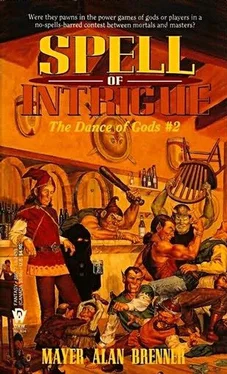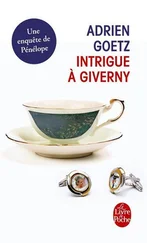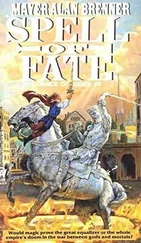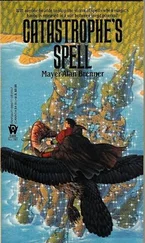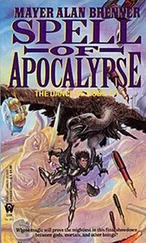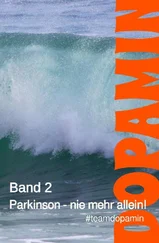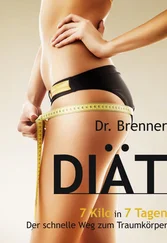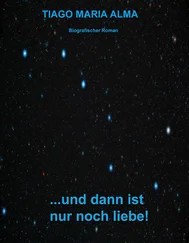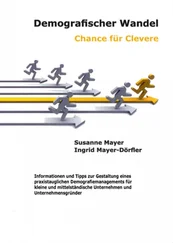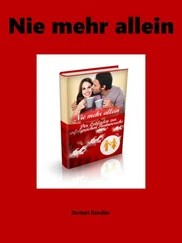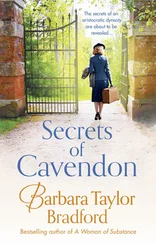We made reasonable time; not the kind of pace you’d set with a winged horse or a sky-chariot or even a steered balloon, but we didn’t dawdle either. When you got right down to it, the only differences that sprang to mind between the trip I’d expected to have and the one I was getting instead were the direction I was heading and the company I was traveling with. Of course, those weren’t exactly minor differences either. Although I was sure Max could be a difficult traveling companion if he wanted, at least I didn’t have to watch my every step with him, with the penalty of a wrong move being instant annihilation.
We didn’t talk much, just bounced around on our horses during the day and sat looking cryptically at each other over our plates in the evening. As a result, I didn’t find out anything more on the road about why we were heading for Oolsmouth, or what it was about the headquarters of the Oolvaan Mutual Bank that would justify the trip once we’d arrived. There was no disguising Zhardann’s priorities, though, for when we reached Oolsmouth late on the morning of the fourth day after our departure from Roosing Oolvaya, Zhardann sent the retainers off in one direction with the baggage and immediately led Jill and me out into the city on another course entirely.
Compared to Roosing Oolvaya, Oolsmouth was a real city decorated conspicuously with the signs of genuine wealth. Not that Roosing Oolvaya is anything to sneer at, you understand, but Oolsmouth did make its smaller cousin to the north look a bit shabby by comparison. With its wide streets and public statuary and big fancy buildings, the block-sized palaces of the merchant trading houses and their adjoining temples festooned with stone carvings and stained glass and long paneled frescoes, the parks with their rolling green lawns and pruned trees and civilized squirrels, and the unmistakable absence of a city wall, Oolsmouth radiated an aura of smug gentility mixed with ostentatious opulence. It was a place that was secure enough in its affluence and stature that it had to fear neither invasion nor the restraints of good taste and didn’t care who knew it. We even passed an opera house, of all things, complete with a grand colonnaded entrance lined with statues of musicians waving their various flutes and woodwinds and strings toward the heroically proportioned woman at the center, her stone wings upraised, arms outstretched, eyes uplifted, and throat distended in a mercifully silent stratospheric wail: at least they’d stopped short of having some specialist sorcerer animate the statues, although maybe they saved that for the season’s opening night. A block down from the opera building, in front of the open gate of another three-story wood-frame complex, my skin prickled and the air turned abruptly cool and fresh as we entered the leakage zone of an air-conditioner field pushing back the muggy breezes off the river. I immediately tried to think of a good reason to visit whoever lived inside the place, or at least to stroll in the door, since their air conditioning was the most pleasant sensation I’d felt all day. Even my horse turned its head and glanced longingly through the gate, but Zhardann, in the lead, never wavered. I gritted my teeth and urged the horse on. Five paces later the humid river air came rolling back over us.
We turned the corner at the end of the block. Amazingly, the street just ahead even had a stone sidewalk separated from the thoroughfare proper by a neat row of shrubs. Traffic was as bustling and purposeful here as it had been anywhere else around the center of town. Over on the right, though, where another major building occupied the center of the block flanked by a two-story structure on each side, I could see an obvious gap in the traffic. People were edging away from the entrance to the bigger building, making long curves in the street to keep from getting too close and taking a detour that was too self-evident to be anything else. A few men were loitering around in front of the place, men with pikes and swords who were all wearing the same outfit, a yellow tunic with a green cap draped over the left shoulder and balanced with a rakish dangle off the right.
Zhardann reined up. “Hmm,” he said. Then he urged his horse ahead again and trotted toward the cleared area, making for the locked gates at the entrance to the building’s courtyard. Jill and I followed. As we broke clear of the street traffic and our destination became apparent, two of the uniformed men moved to intercept us, holding their pikes at the ready. One of them raised his free hand to block Zhardann and said, “Halt! What is your business here?”
“Why?” said Zhardann, letting his horse continue straight toward the man. “Who are you?”
The man held his position, dropped the butt of his pike to the ground, and lowered the sharpened metal tip toward Zhardann’s face. “Halt, I said. What are you, deaf?”
Zhardann looked at the pike. Judging by the look in his eyes, he was apparently weighing exactly how to go about pulverizing it. He pulled the horse to a stop a hand’s-breadth before he would have impaled himself in the eye. “And I said, who are you to be asking me anything? I have business with this establishment.”
“No, sir, you do not,” said the guard.
“Oh?” said Zhardann. “And why is that?”
“Because this establishment is closed, sir.”
The gate was not only closed and locked, it had a thick chain looped through it, and the chain, too, was locked. The driveway under the third-story overhang and the interior courtyard I could see beyond appeared empty and deserted. A person-sized street-entry door next to the gate was also closed and sealed shut with a chain. “Just why is this establishment closed?” Zhardann demanded. “This is a bank, is it not, and the idea of banking is to deal with customers, of whom I am one, so what is the problem here?”
“The establishment is closed. Sir.”
“So you said. Why?”
“Because it’s not open.”
Jill, who’d ridden up next to Zhardann, leaned over and put a hand on his shoulder. I was a little surprised to see that her palm wasn’t burned; Zhardann was obviously getting pretty heated up. “When will the bank be open?” she said.
“I don’t know that I can say, ma’am.”
“Is the bank still in business?”
“That most likely depends on how you define things.” said the guard, who was either the Oolsmouth champion straight man or who was having a very good time without a sign of it showing on his face.
“What do you mean,” shouted Zhardann, “ ‘define things’?”
“I think you’d best be moving along now, sir.” The guard waggled his pike suggestively.
“Do you have any idea who I am?”
“Wouldn’t make no never mind if I did.”
“Wait,” said Jill, tightening her grip on Zhardann. “This is the Oolvaan Mutual Bank, isn’t it?’
“Again, ma’am, that mostly depends on how you define it,” said the guard.
“How would you define it?”
“It’s surely not my place to say, ma’am.”
“Who could we see to find out more about the situation, then?”
‘‘I’d have to think about that, ma’am. Don’t rightly know that there is more to find out.”
The score was now (at best) Guard 2, My Side 0, so I figured I might as well step up and take my chance. “Who hired you?” I asked him.
“I don’t know that that’s any of your concern, sir.”
“Look.” I said. “Let’s try this. You’ve heard we’re here to do business with a bank. You’re telling us we can’t do business with this bank, right? Do you have any suggestions about another bank we should take our trade to?”
“That would be the Bank of the New Dawn, sir.”
Zhardann and Jill turned in unison to stare at me. I crossed my forearms over the pommel and leaned comfortably forward over my horse ‘s neck toward the guard. “Any particular reason you make that specific recommendation?”
Читать дальше
